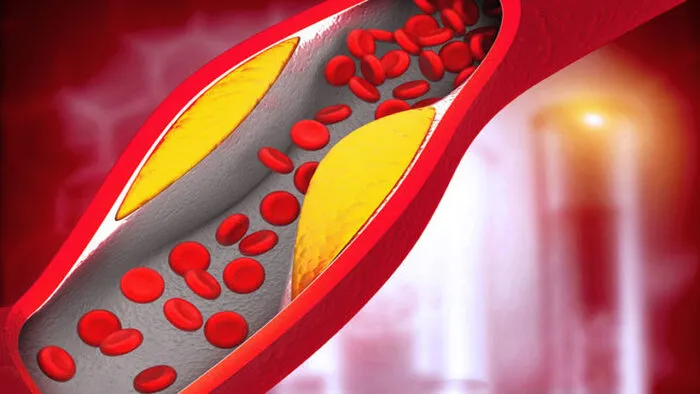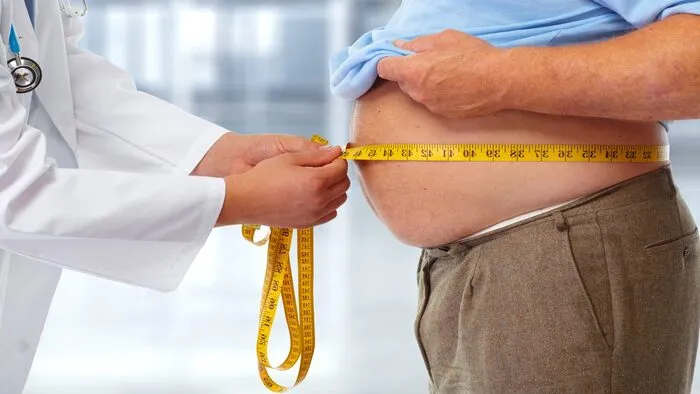Today’s busy lifestyle, stress and carelessness about food is becoming the cause of obesity, which is the most important reason for weight gain. These days it is becoming a common problem.
In almost every household someone or the other is suffering from this disease. Sometimes being overweight can even embarrass you. Not only this, obesity also leads you to many other serious health problems. It is clear that obesity is not helpful in any way but is injurious to our health.
3 main symptoms of obesity :
Obesity affects your body as well as you. You may think that having an extra thick layer on your skin is not a big deal, but it can have many serious consequences like breathlessness and sweating while doing small tasks, sleeping more or less than necessary.
Symptoms like shortness of breath or rapid breathing, swelling in different parts of the body, accumulation of fat in different parts of the body, mental and psychological symptoms such as loss of self-esteem, self-confidence can be seen. Apart from this, obesity increases the chances of type 2 diabetes. It also increases the chances of getting heart disease.
3 main causes of obesity :
The most common cause of obesity is burning fewer calories during daily activity than you consume daily over a long period of time . Over time, these extra calories accumulate and cause weight gain.
But it’s not always just a matter of calorie consumption and lifestyle. There are some reasons which are not in your control. Let us know about them.

- Genetics, which affect how your body turns food into energy and stores fat
- Aging, which can lead to lower muscle mass and metabolic rate
- Not getting enough sleep , which can lead to hormonal changes that lead to overeating
- Pregnancy
- Some medicines, along with which you do not make changes in diet and activity, can increase your weight. Examples of such medicines are antidepressants, antiseizure medicines, sugar medicines, antipsychotic medicines, steroids and beta blockers
Some health problems can also lead to weight gain, which can lead to obesity. This includes :
- Polycystic ovary syndrome ( PCOS ), a disease that causes an imbalance of female reproductive hormones
- Prader-Willi syndrome, a rare disease present at birth that causes excessive appetite
- Cushing’s syndrome, which is caused by increased levels of cortisol (the stress hormone)
- Hypothyroidism (low thyroid), a condition in which the thyroid gland produces too little of certain important hormones
- Arthritis or osteoarthritis and other conditions that cause pain that may lead to reduced activity
Prevention of obesity
Obesity and obesity-related diseases have increased greatly in the last few decades. That is the reason why everyone is stressing on healthy eating and physical activities.
On an individual level, you can prevent weight gain and obesity by adopting a healthy lifestyle –
- Get moderate exercise such as walking, swimming, or bicycling for 20 to 30 minutes a day
- Choose nutritious foods such as fruits, vegetables , whole grains , and lean proteins.
- Eat less or no high fat calorie foods
Obesity test – Diagnosis of Obesity
If your body mass index falls in the obese category, your doctor will take your health history. He will do a physical examination of you and suggest some tests.
The tests include –
1. Checking your health history – The doctor will take information about you such as your weight history, efforts made to lose weight, exercise habits, eating habits, any medicines you have been taking for a long time , stress levels, and other health problems. The doctor may also check your family health history.
2. General Physical Examination – In this your height is measured. And your vital signs are checked such as heart rate, BP, body temperature, abdominal examination.
3. Calculating your BMI – Doctors can calculate your BMI to know your level of obesity.
4. Measuring your waist circumference – Fat stored around the waist can increase the risk of many diseases such as diabetes and heart disease .
5. Blood tests – The blood tests recommended by the doctor depend on your health, risk factors and the symptoms you are having. The doctor may suggest you the following tests –
- Cholesterol test
- Liver function test
- Fasting Glucose Test
- Thyroid test
- Electrocardiogram .
Obesity treatment
The goal of obesity treatment is to reach and stay at a healthy weight. You may need to work with a team of doctors – a dietitian, behavioral counselor or obesity specialist – to understand and make changes to your eating and physical activity habits.
All weight loss programs require changes to your eating habits and an increase in physical activity. The treatment methods that are right for you depend on your level of obesity, your overall health, and your willingness to participate in a weight loss plan. Other treatment tools include dietary changes, exercise, and physical activity.
Dietary changes
- Reducing calories and eating healthy foods are important in overcoming obesity. You might want to lose weight quickly, but it is better for your health to lose weight slowly. By doing this, the chances of gaining weight back are also less.
- Avoid unrealistic dietary changes, such as crash diets, as they weaken your immune system and put you at risk of dehydration .
- Continue the weight loss program for at least 6 months and the maintenance phase of the program for at least a year for best results.
- Choose a diet plan that includes healthy foods that you feel will work for you.
- Calorie Reduction – You can lose weight by reducing your calorie intake. You and your doctor can keep track of your eating and drinking habits, how many calories you’re usually taking in, and where you can cut back. You and your doctor can decide how many calories you need to consume each day to lose weight.
- A typical intake is 1,200 to 1,500 calories for women and 1,500 to 1,800 calories for men.
- Get fuller with less food – By eating larger portions of low-calorie foods, you can reduce hunger pangs.
- Make Healthy Choices – Eat fruits, vegetables and whole grain carbohydrates to make your overall diet healthy . Also emphasize sources of protein such as pulses, soy and meat (lean). If you like fish, try to include fish twice a week. Reduce the amount of salt and sugar. Consume low fat dairy products. Eat fats in moderation and make sure they come from heart-healthy sources, such as olive, canola and walnut oils.
- Limiting certain foods – Some diets limit the amount of a particular food group, such as high carbohydrate or full fat foods. Ask your doctor what diet plans are effective that may be helpful for you. Drinking sweetened beverages will make you consume more calories, and limiting or eliminating these drinks is a good start.
- Meal Replacement – Replace one or two of your meals with a low calorie shake or meal bar. Consume less calories and fat.
Exercise and activity
Physical activity or exercise is an essential part of obesity treatment.
To boost your activity level:
- Exercise – People who are overweight or obese need at least 150 minutes of moderate-intensity physical activity a day to lose weight or lose a moderate amount of weight. For more significant weight loss, you may need to exercise 300 minutes or more a week. You can gradually increase your exercise amount as you improve your endurance and fitness .
- Aerobic Exercise – Regular aerobic exercise is one of the most effective ways to burn calories and lose excess weight. Making simple changes during your day can make a big difference.
Surgery
Common weight loss surgeries include:
- Gastric bypass surgery
- Laparoscopic adjustable gastric banding (LAGB)
- Biliopancreatic diversion with duodenal switch
- Gastric sleeve
What are the other diseases and disadvantages caused by obesity?

If you are obese, you are more likely to have a number of serious health problems, including:
- High cholesterol
- Sugar
- High BP
- Heart disease
- Stroke
- Breathing problem
- Gynecological problems such as infertility and irregular menstruation
- Erectile dysfunction and other sexual health problems
- Fatty liver
- Osteoarthritis

